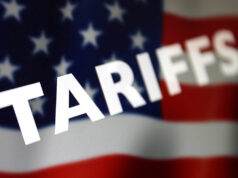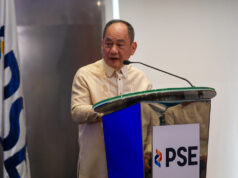R&I upgrades Philippines’ credit rating to BBB+
JAPAN-BASED Rating and Investment Information Inc. (R&I) has upgraded the Philippines’ credit rating on the back of its positive growth performance, healthy fiscal conditions and its infrastructure development drive.
R&I has upgraded the country’s credit rating by a notch to “BBB+” from “BBB”, just a step away from the minimum score within the government’s targeted “A” scale. R&I also assigned a “stable” outlook to its rating on the Philippines, signifying that the grade is unlikely to be changed within the short term.
“R&I said the upgrade was based on its assessment of the Philippines’ positive growth performance and prospects on the back of the government’s infrastructure development drive, as well as the government’s ability to keep its fiscal condition healthy,” the Bangko Sentral ng Pilipinas’ Investor Relations Office (IRO) said in a statement on Friday.
Aside from this, IRO said the ratings firm also took into consideration better socioeconomic climate in the Philippines.
Based on R&I’s report as cited by the IRO, the country’s economy was said to be driven by the current administrations’s aggressive public investment, its “commitment to fiscal discipline”, its “confidence of achieving the downward trend of the debt ratio even as public investments rise.”
Moreover, R&I took into consideration the country’s lower unemployment and poverty rates as well as rising per capita gross national income.
“Favorable assessment from Japanese credit rating agencies like R&I has become more important for the Philippines in recent years, given the government’s successive issuances of Samurai bonds in the Japanese market as part of the strategy to diversify sources of financing,” IRO said in a statement.
The economy grew by 5.9% in 2019, missing the government’s target range of 6-6.5%.
Meanwhile, data from the Philippine Statistics Authority (PSA) showed the unemployment rate slipped to 5.1% in 2019 from 5.3% in 2018. The 2019 figure is also the lowest in 14 years.
The PSA also reported that poverty incidence decreased to 16.6% from 23.3% in 2015, translating to about 5.9 million poor individuals lifted from poverty.
“…hitting an A-scale rating from R&I and the other debt watchers within the next two years is achievable. But of course, we can never be complacent…,” BSP Governor Benjamin E. Diokno was quoted as saying in the IRO statement.
“On the part of the BSP, we will continue to adhere to the sound conduct of monetary policy and banking supervision,” he added.
Earlier, Mr. Diokno identified key structural reforms which he said could boost the country’s credit ratings, including amendments to the Anti-Money Laundering Act of 2001 (AMLA) and the Human Security Act of 2007 (HSA), amendments to the Agri-Agra laws paired with fresh reforms in financial consumer protection and deposit secrecy.
Mr. Diokno said a “stronger economy” is the objective and getting the “A” rating is not the end in itself.
Despite this, he cited benefits that the country may reap from an “A” rating, including lower borrowing costs for the government, which will cause more savings that can be utilised to “fund more roads, urban transport, mass housing, education, health services, and social welfare”.
“Over time, interest rates on loans may also decline, thus benefiting individuals and firms securing loans for consumption and investments,” he added.
Meanwhile, Finance Secretary Carlos G. Dominguez said the country’s “strong macroeconomic fundamentals plus the [President Rodrigo R.] Duterte administration’s aggressive investment strategy, while maintaining fiscal discipline, show that we deserve the higher rating.”
In 2019, S&P Global Ratings also upgraded its credit rating for the country to “BBB+” on the back of above-average growth and strong external and fiscal position that have buoyed the economy.
Meanwhile, Fitch Ratings and Moody’s Investors Service affirmed their “BBB” and “Baa2” ratings for the country, respectively, which are both a notch above the minimum investment grade. — Luz Wendy T. Noble



